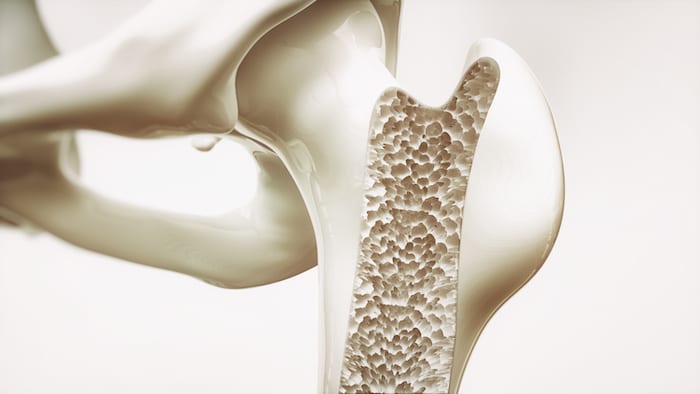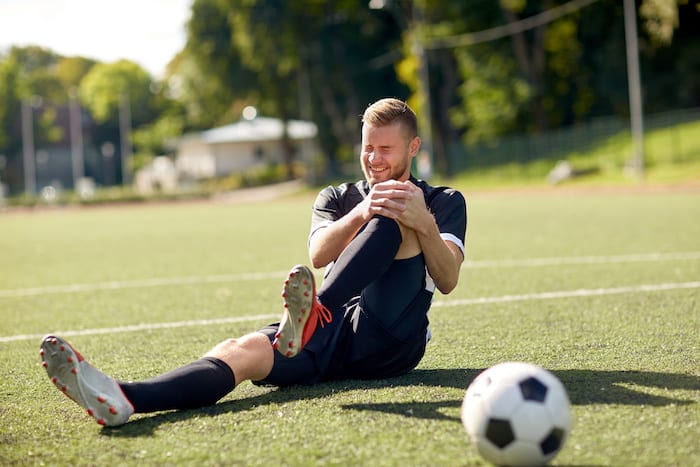Osteoporosis is a condition that many of us will experience at some point in our lives. According to recent statistics from the International Osteoporosis Foundation, worldwide, 1 in 3 women over the age of 50 years and 1 in 5 men will experience osteoporotic fractures in their lifetime.
When we think about osteoporosis, we may commonly associate it with an elderly individual breaking a hip from what seems like a minimal intensity fall, but we understand that this is a possibility due to age and bone health. While the condition may seem fairly straight forward, many aren’t aware that there are four different types of osteoporosis.
1. Primary Osteoporosis
Primary osteoporosis makes up the vast majority of the cases. There are many factors that contribute to its severity such as age, nutrition and activity level. Gender is often also a factor, as primary osteoporosis is more prevalent in women than men.
As bones reach their peak density around age 30, there is a gradual decline over time that occurs if one’s activity level does not help offset the amount breakdown-taking place. This occurs secondary to hormone levels decreasing, mainly testosterone (which promotes bone growth) and estrogen.
While we often associate this type of osteoporosis with the elderly population, it can happen in younger adults as well if activity levels are not enough to stimulate bone growth activity. Additionally, if hormone levels drop secondarily to overtraining or malnutrition, bone breakdown may also start as early as high school such as is seen in conditions associated with the Triad in male and female student-athletes.
2. Secondary Osteoporosis
Secondary osteoporosis is very similar to primary except that it occurs in response to a particular disease, normally one that will affect hormone levels within the body such as conditions that interfere with thyroid health. While primary may be addressed through a gradual change in activity levels and diet, secondary osteoporosis is often treated by hormone replacement therapy and other more extreme measures.
It is important to note that secondary osteoporosis may occur subsequently with primary, but must have an etiological mechanism to be classified as secondary.
3. Osteogenesis Imperfecta
Osteogenesis imperfecta is a condition that is the result of a genetic mutation, affecting roughly 6-7 out of every 100,000 people. It has eight known types ranging from mild to severe and mainly affects bone health, causing conditions to manifest similar to traditional osteoporosis.
The condition will normally exist with other symptoms such as respiratory issues, height defects, and an abnormally small rib cage. Depending on the severity, bones can break often with very little stress applied. Also, in severe cases, the associated respiratory issues may decrease life expectancy in accordance with all of the other comorbidities present.
4. Idiopathic Juvenile Osteoporosis
This pediatric condition has no known cause and usually has an onset just before puberty. In essence, it is brittle and porous bones with no other associated symptoms and will usually resolve without medical treatment after a relatively short amount of time.
If this condition is found to be present, it is recommended to have children monitor their activity or follow their physician’s guidelines for maintaining general health.
When to Seek Help
If you are suffering from osteoporosis, call (903) 737-000 to schedule an appointment with the Paris Orthopedic Bone Health Clinic today. Our experts are committed to providing diagnosis, treatment and education for the primary and secondary prevention of osteoporosis. For more information, you can contact our office or visit The National Osteoporosis Foundation.








